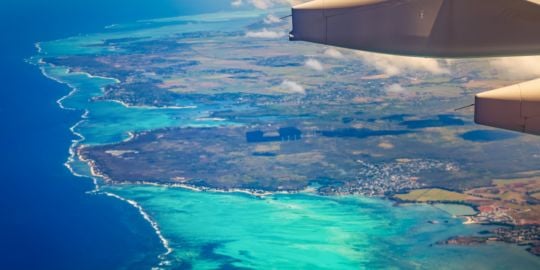Can you briefly introduce yourself and tell us about your background?
I am of Italian origin as my parents are from Puglia, but I was born in Germany. After completing my university studies in Chinese and English interpretation, I moved to China. I have lived in Beijing for seven years.
What are you doing currently?
My passion for the tourism industry was born during my stay in China. I started my career in the hospitality industry just after the Beijing Olympics in 2008. Since then, I have followed my instincts, and this helped me become a global citizen. I've worked in the tourism and hospitality sector in several countries, mainly in the field of digital marketing and communication.
Since the beginning of the COVID-19 pandemic, this passion has turned into a real mission. Today, I'm working with leaders of the tourism industry to help revive the sector internationally—this time being more conscious of its social, environmental and economic impact.
So I provide strategic marketing support to private and non-private tourism organisations. Together, we reformulate marketing plans aimed at relaunching the sector. I'm a virtual speaker at tourist events that have gone virtual, and I run virtual workshops for organisations that need a follow-up in their marketing and communication strategies.
You have lived and worked in several countries. What was your most memorable experience?
China had a decisive impact on my true perception of the "travel" concept. Let me explain. For many, travel means leisure, relaxation, personal enrichment, discovery, etc. Regardless of the reason we travel, we always end up back home.
But it's different for me. Travelling from an early age was a learning method, and it played a significant role in my life. Learning foreign languages allowed me to communicate efficiently. I was able to familiarise myself with international modes of transport (planes, boats, trains), and all this increased my self-confidence and allowed me to get in touch with people of diverse origins. It got the opportunity to create new bonds and friendships, some of which are inseparable even today. It also helped me better understand the human psyche.
China is an exceptional nation in many ways. It is also a country with a high population density. By living there, especially in urban areas, you are constantly surrounded by millions of people. You feel like you're just a tiny pawn in the urban game of their huge society. So it was no coincidence that seven years later, I decided to relocate to a place that provided me just the opposite scenario: the Maldives.
In the Maldives, I discovered the Islamic culture, the unique beauty of these islands and their fabulous marine universe. From Beijing, a capital city of several million people, to a 2 km island with barely 300 inhabitants, it was indeed an extraordinary experience. Living and working in the Maldives taught me to manage interpersonal relationships, given the extreme closeness between people. But not only. The years spent on the island have profoundly affected my ability to feel good about myself, be independent, highly focused, and productive.
What brought you to Mauritius?
Mauritius was both a personal and professional choice. After several years in the Maldives, where my career was linked to the hotel industry, Mauritius was ideal for developing an independent activity in the tourism sector.
What was the impact of the global health crisis on your professional activity?
Like so many other professionals in this industry, I'm also working remotely, but this isn't a new thing for me. At the moment, however, the tourism industry needs a big boost. So I had to recalibrate my professional skills to the current needs of the sector since I have the opportunity to work with organisations and individuals to contribute to the recovery of the travel economy.
What does your day typically look like?
For someone like me, every day is different. In general, I have a very healthy routine, which includes a lot of outdoor sports. This is why Mauritius seems to be the perfect place for me. I wake up early in the morning, go for a walk with my dog Pepper, have a light breakfast and a shower before spending two to three hours working in front of my computer. In the afternoon, I have virtual meetings on Keynotes, Zoom, etc. I often end my day jogging in the sugar cane fields (which sounds very romantic, but it's hard, actually!)
What are the main challenges you have faced as an expatriate in Mauritius?
As in other countries, the biggest challenge has been to create a social and professional network. Mauritius is not very big, so depending on what industry you work in, you may meet many people, whether they are locals or expats. On the social side, I believe that every expat is free to build the life he wants. I have had the opportunity to meet quite a few people, from individuals who constantly surround themselves with their alikes to those who live more independently.
What are your plans for the future?
Reviving international tourism is not just a project but a mission. I will continue to work with tourism organisations around the world. I recently started a podcast called “Truth Behind Travel” on which I interview leaders and experts in the travel industry. The podcast was previously ranked # 1 in the “Travel and Places” category on the Apple podcast for Mauritius. So it remains one of my priorities.

















Contact us to be featured in the Interviews section.
Participate